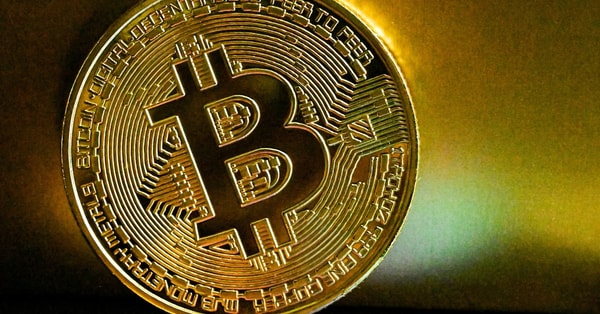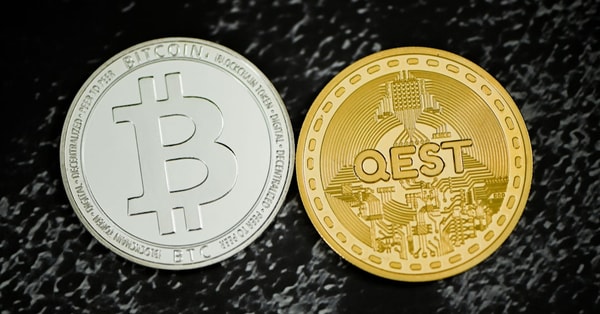Japan's Major Banks Set to Launch Stablecoin Trial by March 2026
Japan's largest banks are set to trial stablecoins by March 2026, marking a significant step in the country's digital currency evolution.
In a significant development for the financial landscape of Japan, the nation’s largest banks have received the green light to commence trials for stablecoins, with a planned launch date set for March 2026. This initiative marks a notable step in the evolution of digital currencies in Japan, a country that has been historically cautious yet open to innovations in the financial sector.
Stablecoins are a type of cryptocurrency designed to maintain a stable value relative to a fiat currency or a basket of goods. They achieve this stability through various mechanisms, including pegging their value to traditional currencies like the US dollar or through collateralization. Unlike more volatile cryptocurrencies such as Bitcoin and Ethereum, stablecoins are intended to provide a reliable means of transaction and store of value.
Japan has been a frontrunner in the adoption of cryptocurrency and blockchain technology. The country recognized Bitcoin as a legal form of payment in 2017, and it has since established a regulatory framework to ensure the security and integrity of its cryptocurrency exchanges. However, despite this progressive stance, the Japanese market has been tepid with the adoption of cryptocurrencies for daily transactions.
Japan's Major Banks Set to This cautious approach stems from the need to balance innovation with regulatory oversight. Following high-profile hacks and scandals in the cryptocurrency space, such as the infamous Coincheck hack in 2018, Japan has prioritized consumer protection and financial stability.

The introduction of stablecoins by major banks is poised to address some of the challenges associated with traditional cryptocurrencies. By offering a stable digital currency option, banks can facilitate more seamless transactions for consumers and businesses alike, potentially increasing the use of digital currencies in everyday commerce.
Moreover, stablecoins can enhance the efficiency of cross-border payments, which have traditionally been slow and costly. As Japan continues to engage in international trade, the ability to transact quickly and affordably across borders could provide a significant competitive advantage.
According to a report by Nikkei, multiple Japanese banks are collaborating on this stablecoin project, pooling resources and expertise to ensure that their digital currency is robust and secure. This collaborative approach not only spreads the financial risk associated with such an innovative venture but also fosters a sense of unity among the institutions as they navigate uncharted territory.
The banks involved are expected to leverage existing payment infrastructures and regulatory frameworks to facilitate the launch of their stablecoins. This integration with traditional banking systems is crucial, as it will ensure that the new digital currency can be adopted without significant disruptions to the current financial ecosystem.

The success of this stablecoin trial will largely depend on the regulatory landscape. The Financial Services Agency (FSA) of Japan is known for its rigorous oversight of financial products, and the introduction of stablecoins will require close collaboration with regulators to ensure compliance with existing laws.
Japan's regulatory framework for cryptocurrencies is evolving. The FSA has been proactive in seeking input from industry stakeholders as it considers how to best regulate stablecoins. This includes discussions surrounding consumer protection, anti-money laundering measures, and the potential risks associated with digital currencies.
Japan's foray into the stablecoin market could have broader implications for the global financial system. As one of the world's largest economies, Japan's adoption of stablecoins may influence other nations to follow suit, particularly in Asia, where several countries are exploring digital currency initiatives.
Furthermore, Japan’s stablecoin project could prompt discussions about the future of central bank digital currencies (CBDCs). While stablecoins operate within a decentralized framework, CBDCs are issued and regulated by central banks. The introduction of stablecoins by major banks may encourage central banks globally to accelerate their own digital currency projects, as they strive to keep pace with the rapid evolution of financial technology.
As the stablecoin trials progress, consumer reception will be critical to the initiative's success. Public awareness and understanding of stablecoins are essential for widespread adoption. Educational campaigns may be necessary to inform consumers about the benefits and risks associated with digital currencies.

Looking ahead to March 2026, the stability and usability of these stablecoins will be paramount. The banks’ ability to provide a reliable, user-friendly digital currency will determine whether the initiative can gain traction among consumers and businesses.
Japan's largest banks are on the brink of a significant shift in the financial landscape with their planned stablecoin trials set for March 2026. This initiative represents not only a response to the growing demand for digital currencies but also a potential catalyst for broader changes in the financial ecosystem. As these trials unfold, the implications for consumer behavior, regulatory frameworks, and the global financial system will be closely watched by stakeholders around the world.
Tags:
Related Posts
Your Friendly Guide to Choosing a Secure Hardware Wallet
Feeling overwhelmed by hardware wallet choices? Let’s simplify it! Discover how to safeguard your crypto assets with the right storage solution.
Bouncing Back: 5 Steps to Recover from Crypto Losses
Lost money in crypto? You're not alone! Discover five practical steps to help you bounce back and regain your investing confidence.
How to Explain Cryptocurrency at Family Dinner
Not sure how to tackle the cryptocurrency convo with your family? This guide breaks it down in a way everyone can understand—without the jargon!
Exploring NFT Real Estate: A New Investment Frontier
Curious about how NFTs are changing real estate? Discover the potential of digital property investments and what it means for the future of ownership.
Start Earning Passive Income with Ethereum Staking
Learn how to make your Ethereum work for you! Discover the steps to start staking and turn your crypto into a reliable source of passive income.
Top 5 Yield Farming Platforms in 2023: My Personal Picks
Curious about yield farming? Join me as I break down the top 5 DeFi platforms for 2023—let’s find the best options together!